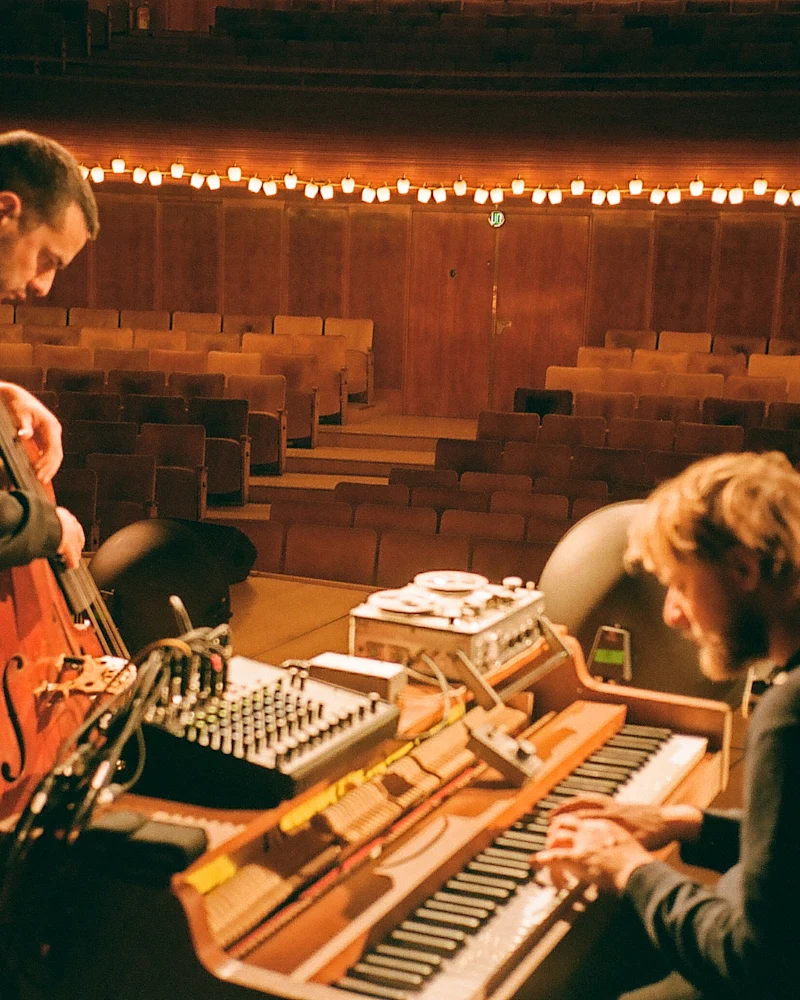
Bremer McCoy
Bremer/McCoy Seek Ultimate Freedom With 4 00,000 monthly listeners, Bremer/McCoy have, against all odds, created their own subdued cosmos in a noisy era. Appropriately, "Kosmos" is the title of the duo's sixth album. Here, they aim to convey a worldview rooted in deep connectedness and a sense of freedom. The raw material includes tracks that have been simmering for 15 years, alongside pieces that emerged in an intense moment within 15 minutes. "Kosmos" is a statement without exclamation marks or large fo nts. It’s the attempt of two Danish musicians to capture the world they stand for — and wish to share with others. The album represents a worldview, and in Bremer/McCoy’s cosmos, we can meet each other without words. "Humans have always played music. We've s at around fires and sung. We've danced. When we play together or listen together, we communicate wordlessly. And right now, it's important to remember to communicate, as many feel we are in tough times. What we represent is an apolitical communication. One of my biggest concerns is division. The fact that people’s political stances prevent them from talking to each other, despite so much common ground. Everyone enjoys a walk in the forest, and I believe everyone feels a fundamental joy and peace when experi encing something beautiful being created," says Morten McCoy. At the group's concerts, this intimate and immediate atmosphere arises. The starting point for "Kosmos" was to capture the emotions from their concerts on record. Hence, they approached the init ial studio session as if they were performing a concert and began improvising. Their improvisation style is unique: they don’t improvise solos but songs. They don’t riff aimlessly but delve into a story. They don’t know what story they’ll tell when they st art, but they discover it together. They share a common background and have known each other since Ryvangen Lilleskole. Yet, they are two men living very different lives today — Morten McCoy lives in a commune on a farm with his wife and children, while Jona than Bremer leads a fast - paced city life. In music, however, they always find each other because they can be fully present together. "We are very flow - oriented. One must be careful not to try to force too much into the music or have a plan for what one wan ts. Only when you remove all ego is there room for what needs to happen. If a musician thinks, 'This and that should happen now,' they stand outside the music. We want to play as if we are merely listening to the music as it arises. That is ultimate freedo m," says Jonathan Bremer. This approach is clearer on this album than any of their previous ones. For instance, the first single "Higher Road" was made in a single take, with both instruments and effects applied in the moment. The tracks contain themes of meditation, prayer, gratitude, and a quiet optimism on behalf of all of us. A song like the single "Alting løser sig" ("Everything Will Work Out") is so named because they had a loose idea and began playing to see what would happen. Out came a song fitting for the duo's cosmos, dealing with the notion that fear is a poor driving force; instead, one should try to trust that things will be okay. "Hvor du er" ("Where You Are") came about because they were in the studio with Hans Philip long ago, where he put r andom words together as they played. Among them was "indtil, hvor du er" ("until, where Presstext BremerMcCoy.docx